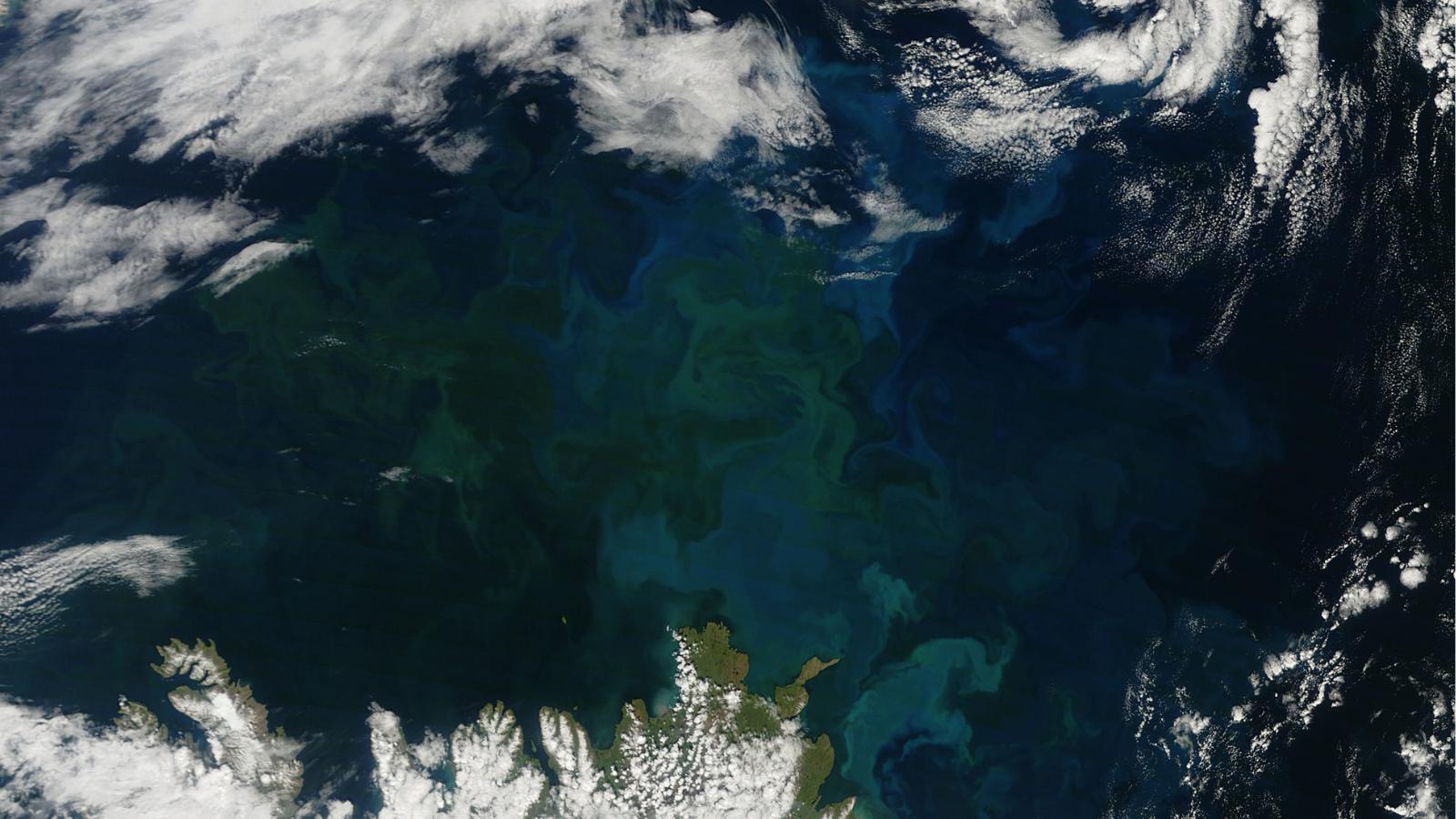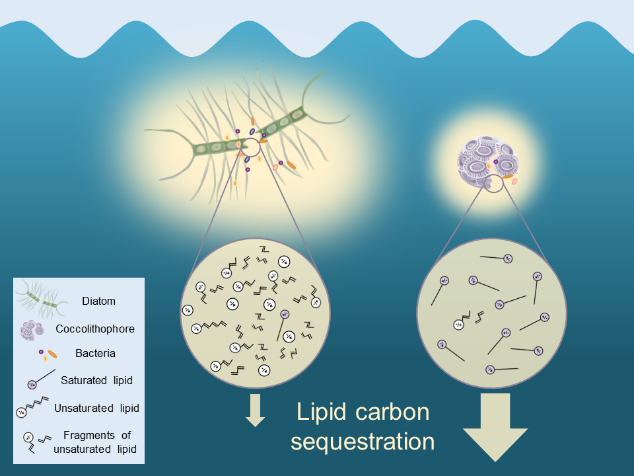The future of life on Earth is inextricably linked to the concentration of carbon (CO2) in the atmosphere. This concentration is continuously increasing: in 1960, the CO2 concentration was 314 ppm; today it is 424 ppm. We see the consequences of this increase every day.
The ocean plays the most important role in removing CO2 from the atmosphere. Phytoplankton in the ocean, through the process of photosynthesis and conversion of CO2 into organic matter that can sink to the depths, is the main driver of the ocean’s biological carbon pump. This pump removes CO2 from the atmosphere for at least 1000 years or permanently buries it in ocean sediments. Biogenic lipids, produced mainly by phytoplankton, are thought to be important vectors for this carbon removal.
The composition of the phytoplankton community is expected to change as a result of ocean warming, says Dr. Jelena Godrijan, lead author of the study. Many predictions point to a dominance of small nanophytoplankton, particularly coccolithophores, at the expense of large phytoplankton, mainly diatoms. Through this work, researchers at the Ruđer Bošković Institute realized that nanophytoplankton synthesize relatively more lipids than microphytoplankton and that these lipids are more resistant to degradation.
The difference in lipid degradability was discussed in relation to the size of the cell's phyosphere, the area around phytoplankton cells that is rich in organic material and bacteria. The hypothesis was that the lipids of nanophytoplankton are less degradable due to a small phyosphere with a poorer bacterial community and consequently have a lower lipid degradation rate than the lipids of microdiatoms. The chemical composition of lipids of different phytoplankton size groups also affects lipid degradability. It was found that the lipids of nanophytoplankton contain significantly more saturated fatty acids, which are more resistant to biotic and abiotic degradation compared to the unsaturated fatty acids of microphytoplankton, especially diatoms.
"The lipids of nanophytoplankton have great potential to transport carbon away into the deep ocean, and thus may help slow global warming," concluded Dr. Blaženka Gašparović, corresponding author and head of the Laboratory of Marine and Atmospheric Biogeochemistry at the Ruđer Bošković Institute.
The research was funded by the Croatian Science Foundation (UIP-2020-02-7868, IP-2018-01-3105 and IP-11-2013-8607).




